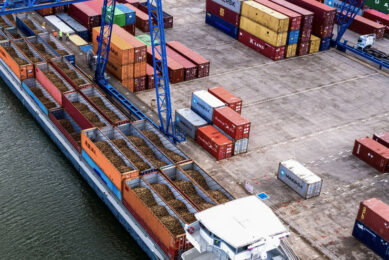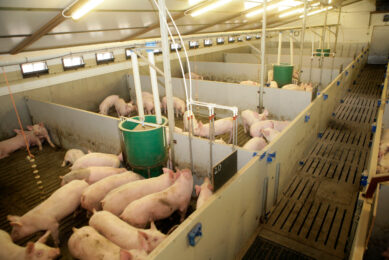UK pig industry calls for level playing field after Brexit

Brexit was never expected to be easy on the UK pork sector, but in January, the UK’s National Pig Association (NPA) reported that export problems were reaching a breaking point. How does the British pig industry view Brexit and its aftermath?
Earlier this year, orders were being cancelled due to delays at Dover, Calais and other ports. In addition, officials at ports in France, Ireland and the Netherlands were reportedly taking a stringent approach to paperwork. “One load was caught at Calais for 20 hours undergoing vet checks and then rejected upon finally reaching its destination in Germany,” reported the NPA in January.
National Pig Association (NPA) chief executive Dr Zoe Davies stated the belief that there is clearly politics at play. “Why are 30% of all UK consignments to the EU being checked?” she asked. “This is far more than many other third country exporters to the EU. For New Zealand, for example, the figure is 1%.”
Meat industry publishes Brexit Impact Report
In late March, the British Meat Processors Association (BMPA) published its Brexit Impact Report, which outlined “systemic weaknesses in the current export system, mountains of red tape and a potential permanent loss of trade of between 20 and 50%.”
BMPA CEO Nick Allen explained at the time that whilst British meat companies are best placed to offer constructive solutions, “these solutions need support and investment from government to build a new system that is fit for purpose.” As outlined in the report, a new inspection and certification system is needed, along with an integrated digital documentation system and an agreement with the EU for a “Common Veterinary Area.”
 NPA’s current view – a double-standard
NPA’s current view – a double-standard
The NPA supports the BMPA’s stance, and the organisation’s senior policy adviser Charlie Dewhirst reported that “the industry as a whole is working very hard to resolve EU export issues. Progress has been made in some areas, such as Trichinella testing, but there remains much more to do.”
One particular area of concern for the NPA is the delay to import checks on goods coming into the UK from the EU. “While we understand the approach taken by the UK government to phase in checks over an extended period,” he said, “the NPA is concerned that this further delay to implementation perpetuates the imbalance between import and exports, giving EU companies a competitive advantage.”
“Little urgency in Brussels to resolve pork export issues”
Furthermore, the NPA feels at this point, said Dewhirst, that “there is very little urgency in Brussels to resolve the export issues when EU products can flow freely into the UK. If pork imports into the UK were facing the same stringent checks as exports, we would have more leverage to resolve immediate problems and there would be more impetus to work together to design streamlined and modern trading processes, which in turn would help to reduce paperwork, delays and the associated costs.”
The existence of a level playing field between imports and exports is critical to the British pig industry because the UK imports about 60% of the pork consumed, and 99% of that comes from the EU. “If EU products can be imported without checks and therefore at a lower cost,” said Dewhirst, “it ultimately impacts on the price British farmers will receive for their pigs.”

Being a UK swine farmer in times of Brexit can be challenging. Read how the Baker brothers of North Farm Livestock manage












